Looking for small business tips? Imagine if you could learn from some of the biggest mistakes someone else has made with their business growth journey, so that you can fast-track your own business growth…
Well you can, by listening to this episode. From one change we made to how we send proposals that has made us £Hundreds of thousands, to wishing we’d used two amazing tools sooner which have been a game-changer for our business. This episode has it all!
Strap yourself in, this episode is packed full of small business tips
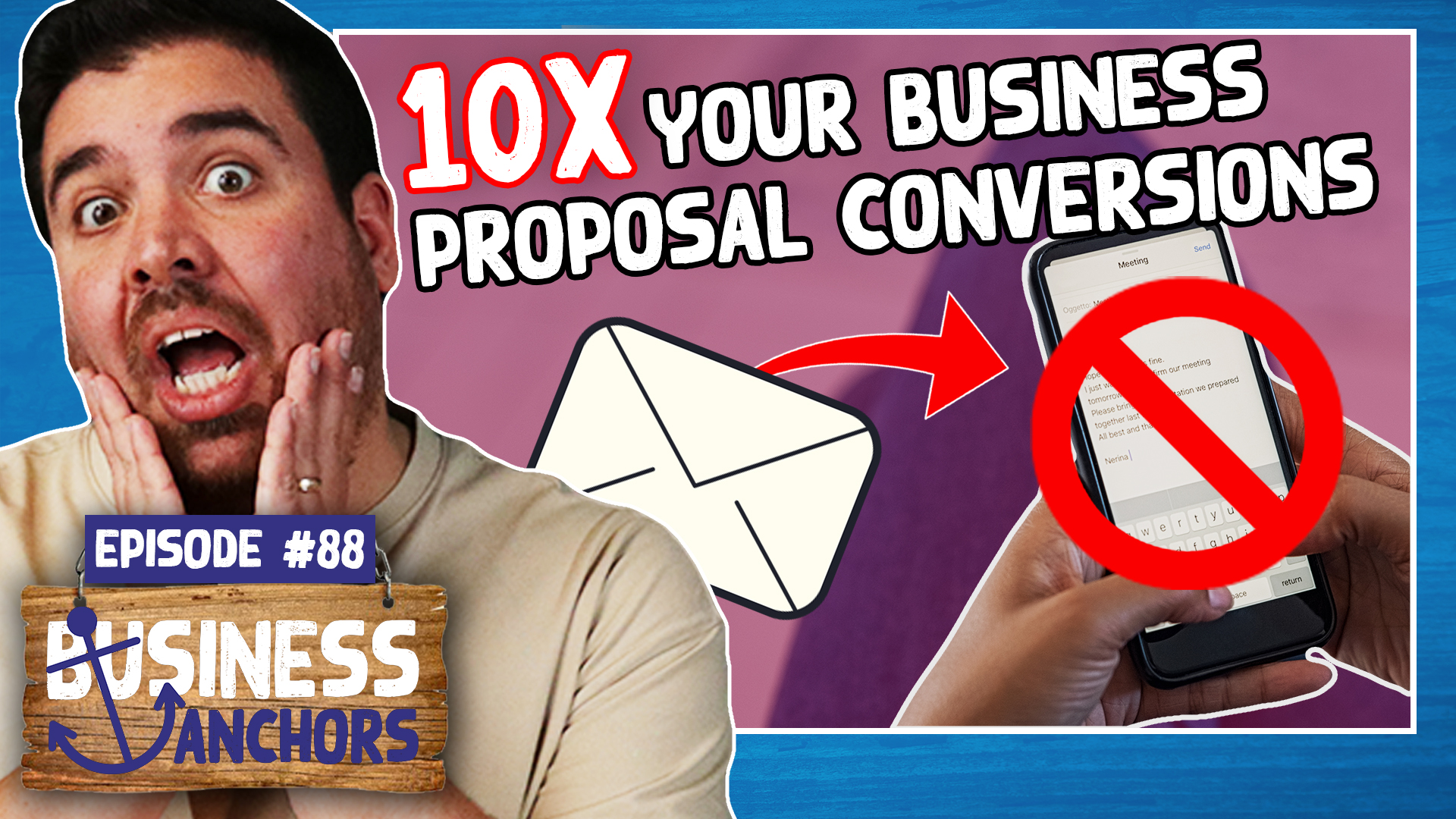
0:00 Pat
Hi, Pat the podcast that is here. What would you do if you could start over? Well, today then annoyed are looking back at some of the minor missteps they took on the road to working with global household name brands, along with some of the changes they would have made.
0:16 Dan
I think some of the biggest lessons we’ve learned have come from ourselves making mistakes, but also from hearing about other people who’ve made mistakes and then thinking ah Lloyd let’s not do that, or let’s do that. And so hopefully, I think this is gonna be a real value-adding episode for the anchors.
0:31 Pat
You’ll hear about actionable steps to put your best foot forward from testing a wider range of marketing approaches to keeping your proposals from sinking to the bottom of the inbox.
0:41 Dan
Look at your current marketing. What are you doing that’s trying something new, try new stuff, I wish we would have done that sooner.
0:49 Pat
Remember, Dan and Lloyd made these mistakes so that with a little luck, you won’t have to right let’s get stuck in. This is episode 88 of the business anchors podcast.
1:10 Lloyd
This is an audible production. It isn’t. Does anyone else listen to audiobooks on Audible and it says that at the end?
1:18 Dan
Lloyd keeps saying that because he’s been listening to it recently. And I thought why not start the episode?
1:22 Lloyd
This is an audible production.
1:24 Dan
It’s not.
1:25 Lloyd
No, it’s not, do not sue us. This is a Knowlton production for the business anchors podcast.
1:24 Dan
So Lloyd our normal starts the podcast I ask you a question. Yeah. What would you do differently if we were starting our business all over again?
1:38 Lloyd
This, urm loads of things. And I think I’m excited about it.
1:45 Dan
So you live with regrets then do you, Lloyd?
1:48 Lloyd
I suppose I wouldn’t describe them as regret. But you know, this is something that I find interesting. You know, no regrets. I think no regrets? I think it’s okay. Saying no regrets is admitting you ‘I never plan to grow or improve anything in my life.
2:08 Dan
No, you’re inferior if you have regrets.
2:11 Lloyd
Oh, am I okay? Well, I have regrets. And I’m proud of them.
2:14 Dan
You go girl. Yes.
2.20 Lloyd
So there would be things I would change that looking back. Don’t get me wrong, happy with the journey I am on in my life. And we are with the business and everything. But excited for this episode. Because I find it exciting when there are massive things we’ve learned on our journey.
And we think, Oh, wow, let’s change it. And then you kind of think, Oh, we could have changed that a couple of years ago would have had massive positive effects. Passing on that knowledge. Hopefully, yeah, might help people.
2:50 Dan
I think some of the biggest lessons we’ve learned have come from ourselves making mistakes, but also hearing about other people who’ve made mistakes, and then thinking Lloyd, let’s not do that. Or let’s do that. And yeah, so hopefully, I think this is gonna be a value-adding episode for the anchors.
3:05 Lloyd
I think we’ve had a couple of similar episodes in the past where we talked about our experiences and what we might change and stuff. But I was thinking like, oh, and we’ve always had really good feedback, really I don’t know if we have, but when I’ve recorded them, I thought they were really good episodes.
3:19 Dan
That’s how we should do all of our marketing, not look at data or anything else. Just what you think with your gut.
3:24 Lloyd
Lloyd, what’s your gut feeling on that? And be one of those business owners. No, look, I don’t look at data. It’s what I feel. Okay. I felt that that was a good episode. But Lloyd the data says that people are unsubscribing.
3:38 Dan
Funny you say that. That’s one of my points later on in the podcast about data. Oh, me too. But let’s Okay, let’s start with Jonah go. First, we’ve got several different things that are gonna open up a can of worms, and lead the conversation for things.
3:51 Lloyd
Yeah. Okay.
3:53 Dan
So what was the first thing that you want to talk about that you would do differently in our business?
3:59 Lloyd
So I would have stopped throwing away opportunities by emailing a proposal to people.
4:08 Dan
Ah, ha, ha.
4:10 Lloyd
And I think this is relevant to a lot of businesses, basically, anyone that if you send, if you’re a landscape gardener, and you’re emailing someone a quote for a job if you’re an accountant, an accountant, a cleaner.
4:24 Dan
Like it can be a service-based business pretty much isn’t it?
4:27 Lloyd
Yeah, I would say, I think it’s, it’ll be a service-based business.
4:33 Dan
What’s a proposal, Lloyd?
4:35 Lloyd
A proposal, so people call it different things. We’ve called it an action plan, call it proposal, call it a quote someone comes to you, I want this thing and you go, Okay, I’ll, I’ll do that. I’ll write I’ll do that thing. I’ll write stuff down about how I’m going to do that thing.
And I’ll tell you how much it’s going to cost when we’re going to do that thing, what’s involved in that thing. And then somehow, I will communicate that stuff to you.
So for years, we would say, oh, you want that thing? Dan would go into his little, well, that’s gonna say, into the spare room, we started the business in. Shut himself down for about two weeks typing out this massive document with full detail of like everything we’re going to do for them.
I mean, the perfect guy for them to do it themselves, it was just probably didn’t work. And don’t get me wrong, you know, for the first few years of the business, we won work this way.
5:31 Dan
I think I was trying to overcompensate for, for my lack of experience, by in this in this proposal showing that look, I know this stuff, I think that was the reasoning.
5:41 Lloyd
I suppose actually that the length of it and the effort that you put into the proposal. And when I say you, it was us like we were working on this together, you were just the one typing. It was coming out of you’re, coming out of your finger, weird way to explain it.
But it wasn’t the length and the effort put in I think it’s often good to put effort into that sort of thing for business. But we would put all of that effort in. And then we would just email it to them. And I’d say, half, we either didn’t get ever hear from them again. Or we heard from them, after chasing them a lot. And they just can’t Oh, no thanks. And we had to I can’t remember exactly when we realised that.
6:25 Dan
Was it a podcast or something? Or someone we learned from someone.
6:29 Lloyd
Why are you emailing it? Well, they asked us to email it. And now I don’t think other than the very low-level business that, you know, without sounding, trying to be boastful or anything.
6:43 Dan
If it’s only worth a couple of million.
6:47 Lloyd
Like it’s not a significant thing for the business kind of like, oh, well, if we can help we can Yeah it doesn’t matter. We always have, well Dan has a call with these people on zoom at least or would meet in person and present. This action plan, and it’s very different.
7:06 Dan
And book that appointment, in the previous meeting you have with them or the previous call or the previous point.
7:12 Lloyd
So when they’re saying to you Oh, yeah. Okay, so what are the next steps? Can you let me know how this works and how much it’ll cost and stuff? You don’t go and get oh, yeah, I’ll do that. And then we’ll arrange it.
Dan says, Yeah, I’ll go and do this. And on that call, or in that meeting, say, okay, right on the second of April, at three o’clock. So you already know, you’re going to have another conversation with them, you’re going to be in front of them, communicating how brilliant your business is, and what you can do for them how you’re going to help them.
And you’re setting yourself up for a win, basically, rather than setting yourself up for failure if you’re sending an email, and it’s something they’re gonna forget. And you don’t have the opportunity to answer any of their questions, because you can only communicate what’s in that thing that you’ve emailed.
And if they read something, oh, I’m not sure about that. If you’re in person, you can say, Oh, if you’re not sure, we could send you five case studies to let you know that we’ve helped the exact business like you on that changer.
8:08 Dan
Making that one small change. If you’re listening to this, and you email proposals, I guarantee you will win shitloads more business if you just do that tip. Yeah, if you are in the previous call or meeting, arrange that next meeting to go through it with them.
8:24 Lloyd
And I do think it is appropriate from businesses like ours to a landscape gardener with two employees. Like if you’re a landscape gardener if you’re only one, but if you landscape gardener and you feel like you want to win more business because some people have enough for what they want to achieve and what they want to be doing.
If you want more, and you’re not converting every piece of business, and you are just sending something off, do this and I’m 100% sure you will win more business.
8:52 Dan
Like most people aren’t doing it, like in our marketing agency land, like most good agencies will do that now. Yeah, but I think in a lot of industries, they don’t, they’ve always done it the way of just sending out emails.
9:06 Lloyd
You say most do in marketing, but we’ve even heard from some, we won’t say who and stuff. But they’re like ‘oh, we have presented this thing’. And then they were emailed this kind of proposal, they could just tell it was a generic thing that they just changed, like, the name of their business to and stuff and you can kind of see who’s going to the effort.
If someone’s going to the effort to communicate what they can do to help you. You kind of get that feeling of worth they’re going to the effort to do this rather than just sending me something they care about and they’re going to put the effort in.
9:38 Dan
I did have this conversation with someone the other day, though, I think another challenge with all service-based businesses is knowing how much effort do you put into that process? Because a big mistake we made at the start as we weren’t good at qualifying how lucrative an opportunity could be, like how big it could be in terms of revenue.
The likelihood of us winning it and how much we wanted it. We didn’t look into any of that. And we treated every opportunity the same. Whereas what we now do is look at opportunities to engage, is this a good fit for us? Is it lucrative, profitable? Is it something we want to do? It’s logical, isn’t it?
10:20 Lloyd
Yeah, I think for any business, you have a different scope, but we may have an opportunity that’s worth 150,000, and an opportunity that’s worth four and a half 1000, we probably want to win both of those pieces of work.
But of course, it’s going to make more sense to put in more resources to win, the more valuable or whatever is more valuable for your business. Yeah, great. So that’s my first one. What about you, Dan?
10:45 Dan
My first one is to be super clear on our unique offer to the world from the start. I think, looking back, for the first few years, we didn’t know how to communicate, we didn’t really know what we’re offering, or how to communicate it, we were just like, marketing will help you with that.
And whereas now we’re clear on what we do, who we help and how we help them. What that does is it helps you attract more of the right opportunities and repel more opportunities that aren’t right for you.
11:19 Lloyd
I think sometimes you can think Well, hang on. No, if I say I do exactly this, what about these other opportunities that aren’t exactly that I’m going to miss out on? When the opposite happens, you get far more opportunities in that thing you’re saying you can do than the other ones you will miss out on?
11:35 Dan
And the way you can test if you’ve got this covered on are is if I said to you now what do you do? Can you clearly and concisely communicate to me exactly what it is you do? In a way that most people will understand? And I think a lot of people can’t?
A lot of people can’t do that. So yeah, if you can’t do that, definitely sit down and take time to think about what is your unique offer to the world? What makes you different from the other 1000 competitors in your area? Yeah, or in the country? And then define that, because that helped elevate our business.
12:10 Lloyd
Great.
12:11 Dan
What else Lloyd would you change or do differently?
12:14 Lloyd
A big thing, a big thing? If you’re in your business involves people, which they nearly all do? Well, they all involve people. But if it’s not just one person, making decisions on overperforming and underperforming people is far quicker.
And by making decisions, I’m not some ruthless guy, as in like, sack them on the second day, if they’re not, I’m not saying that. I’m saying our team is in the I believe in the best position it’s ever been as in performing the highest as a team we ever have. People are enjoying working together more than ever.
12:51 Dan
And this is genuine as well. We’re not just saying the podcast episode. Yeah, we’ve been in lots of different places, ups and downs.
12:56 Lloyd
I do feel now we’re producing the best work we ever have done for our clients. And it’s like saying, there’s a journey to get to that point. And we will have more dips and peaks and things in the future. But what I’ve learned is, you want your people to be rewarded fairly.
And if some people are, every single day, all of your team’s actions are either gaining value for your business or losing value for your business, every decision that’s made, it might be minuscule, it might be, oh, they haven’t put enough time looking into this thing we’re buying. We’ve spent an extra 50 quid. So that’s that person’s actions cost us 50 quid, this person’s put in so much effort and then ultra creative with the way we’ve shot this video.
And that means we’ve produced better work than we have. And we know that’s going to attract more business, they’ve provided huge value in the work they’ve done for the business. And they’ve made us every decision affects that. And I think in the past, there have been people who have been underperforming been overperforming, but everyone sort of was getting rewarded in the same way. And we didn’t implement changes quickly enough to make sure that that wasn’t the case. And we readjusted things.
So if people are underperforming, I think to get in there early to support them with how they can increase their performance and make sure that they’re not. They’re not losing value for the business, because that’s not fair for the rest of the team that is working hard if someone isn’t, and it doesn’t make any difference and those people that are providing great value. Again, more quickly.
This is something I’ve learned more quickly by saying, Wow, what you’re doing is brilliant, and we need to reward you more. So whether that’s pay or whether that’s giving you the flexibility to do this, a promotion, response, whatever, whatever that thing is.
14:53 Dan
From a practical point of view, I think that we have a lot of people listening, thinking that sounds great, and I’ve got a team and I’m making In a zone where I’m sort of rewarded them all equally, and not really, practically what processes and things have we set up that have helped him prove that.
15:10 Lloyd
Clear goals and accountability for the individuals in your team? So, person A, you are responsible for this. And every week in our weekly meeting on a Friday, as a team, we’ll be asking you, are you hitting those goals, and we’ll be questioning and discussing if that’s not happening, and it’d be really clear, or you’ll be saying, I have hit those goals, and it’ll be clear to everyone that you are doing your job well and adding huge value to the business.
That’s one thing, and then that can lead to the actions that you need to take. So every single week, you get a bit of a wake-up call as a business of Oh, hang on, that’s, that’s been two weeks in a row, that person hasn’t been doing what, what we need them to do in their job.
So we need to take some sort of action, have they not got the right support? Or have they got the right support, but they’re not putting in the effort? You know, do they not want to be here? are they struggling with something so we can help them and raise it every week, we have that wake-up call. So I think that’s a really important part.
16:09 Dan
I think the weekly meeting has been a game-changer, not just for the team. I’m part of the team as well. But for me, as well, and what I’m accountable for, for you and what you’re accountable for because we’re just as accountable as the rest of the guys.
And yeah, it is that weekly, wake up call. And we learned this from the entrepreneur’s operating system, which we recently did a podcast on. So listen to that, if you haven’t already done so. But yeah, weekly meetings, checking how you’re performing against what you’re accountable for have been massive.
16:35 Lloyd
Also for your people know exactly what they are accountable for and be clear. And we still need to improve this even further. But you got to be fair, it’s not just about you as a business owner or a manager going like, Oh, now I know these things. It’s giving your team the tools that they need. Oh, I know. Exactly. That’s my responsibility.
Because we had in the past. Oh, I wasn’t sure if I was supposed to do that. Or they were and we both kinds of haven’t and it’s been missed. And that cuts all that out being ultra-clear on accountability. Nice. Yeah, you could have a whole episode on that.
Yeah. That’s, that’s something I’d changed making those decisions quicker, having processes in place to identify people that are over or underperforming and taking actions that are needed far quicker.
17:24 Dan
I’ve got a big one for you from a marketing perspective. Looking back at what we did, I wish and this was my responsibility, we would have tested a wider variety of marketing approaches and platforms more frequently.
I think what we fell into the trap of is doing something that worked a bit and just thinking, yeah, that works. All right, let’s just do that for ages. And more recently, and in the last few years, we’ve been more like eat, like, for example, this podcast this is quite meta.
So when we realise this was a massive thing we should do, we will always want to test at least 20% of our marketing resources into something different and new. We, this was a podcast, this experiment. And now the business anchors podcast accounts for at least 50-60% of our revenue, people who are coming to work with us through listening to this silly little podcast that Lloyd and I sit down to do every week. And that was just a test.
And looking back for the first few years, I think we were just mainly doing the same stuff. And like, Yeah, this is all right. And hence, our growth wasn’t massive for the first few years, whereas now we’re on a really good trajectory.
So I guess an action for you listeners. Look at your current marketing, what do you do to generate business? What are you doing that’s trying something new. So look at your marketing is at least 20% of it trying a new platform like TikTok, or as a unique outreach strategy, like the one we spoke about in a previous episode, our LinkedIn outreach strategy. So yeah, try new stuff. And I wish we would have done that more frequently, sooner.
19:05 Lloyd
Yeah, one of my points is like a step from that, which is to record and analyse marketing activities effectively. So you’re saying try new stuff. And I think the next step is when you’re trying new stuff, and you’ve got your old stuff going on, actually recording the resources you’re putting into those things and what you’re getting back from it.
So far too many businesses have stuff going on. And they might have 20 different things going on that could get them business in different ways. But they have no idea which of the 20 are working and what value they’re getting from any of them and I think we didn’t either to be on it. We were getting much better at this now. And it’s just it’s, it seems so simple like see, you’ve got you got 20 taps, and like one of them’s got like drips coming out. And the other ones like just pouring crazily. And you can look if you had them like that.
You’d be like okay, well obviously we should we should get a big version of that tap. Yeah, because that is just water. That’s all. Yeah, I’m thirsty. Whereas when you just got it all going, oh, yeah, every month? Yeah, it’s all okay, this, this buckets filling up nicely from the 20 Tap. So a weird analogy. But basically, we have sort of done this and now we look at it and it’s like, well, that activity takes two and a half days a month and costs 200 pounds.
You know, so that is going into it. And for our business, we know that needs to ride or worked out 805 pounds of value to the business. So I think being able to look at that and go and ask yourself, so okay, that thing we do, does that create 805 pounds of value for the business, if it’s less than that, it’s not worth doing. If it’s more than that, we need to do more of them.
And we also because we now really analyse all of this stuff, we know how much a lead is worth to our business. So if you’ve worked out and you think, well, actually, every new lead on average, it works out, if we get a lead, our business gets 2000 pounds. If you get one lead from that 805-pound activity, you know, the leads worth 2000 pounds, you know that that thing’s working.
So being able to analyse all of this activity, and it’s step by step, we now have lots of things in place. So we can make these sorts of calculations. But just take the first steps of just trying to understand a bit more like what’s actually coming from this, rather than just being in a completely unknown state of well, the phone rings, we get inquiries through the website. It’s working somehow.
21:32 Dan
Devil’s advocate a little bit. Yeah, because I do honestly agree with you, on most of that. I think even today, still, some things are difficult to track. Like, for example, if you and I like we went to San Diego, we spoke a Social Media Marketing World, and we built some relationships there. Even in a year, someone who saw us there, but hasn’t been in touch and has been quietly following us for ages, and then gets in touch via LinkedIn, no matter how much we ask them, ah where did you find us if we hadn’t remembered that they saw us there.
And they haven’t remembered that that’s where they first saw us, it’s very difficult to track the origin of some business. But if you set up tracking on enough things that you can track, and you know that you know, 20% of it, 30% of it is just the other things that you need to use your intuition for then, that works.
22:23 Lloyd
I think even there’s the first set of things that are hard to track. Oh, we went San Diego and, and built relationships and stuff, we might look at that, oh, that’s cost us like 5000 pounds in time and resources. I think you can still make a good judgement. And that’s the cost. Do we think this trip will make more than that back in the next five years? And I. I would look at that and go, Yeah.
22:47 Dan
We’ve got more paid speaking opportunities. Another thing from just being on the list of those speakers.
22:52 Lloyd
Exactly you can look at it just make a judgement of do I think it’s likely would get more than that back over the long term? And if the answer’s yes, then it’s worth taking that risk, I guess. And if it’s, if it’s no, then it makes you think, yeah, should we be doing something else?
23:07 Dan
Yeah, I think on that note of like, different marketing channels. Another thing I’ve put is to stop, something I would change would be to stop doing the things that don’t work sooner. Like looking back at specific examples, like ah, networking breakfasts you and I went to for years, that I think I do think some of them had value, which I’ve mentioned in the past, but then we just continue doing them for years.
And like, a lot of the time, it wasn’t anyone that we’d ever want to work with. And they said like, they didn’t have the budget and that kind of thing. But we just did it because we were like, Oh, this is something we do.
23:40 Lloyd
Yeah, it’s kind of well, everyone else starting in business seems to do this. So we should just probably keep doing it.
23:46 Dan
And I think Anchors look at your current might like an action, look at your current marketing, look at the different channels. Analyse and ask yourself if that channel generating more value than we’re putting into it in terms of resource time energy.
And I think if you take the time to sit down and write down right channel one, social media, channel two, you know, exhibiting at events, channel three, networking, or whatever your marketing channels are if you take the time to think about it, I guarantee there’s at least one or two channels that you’re pumping shitloads of money in resource into that never achieve anything.
And then you can cut that and put more resources that we mentioned the taps a minute ago. What else have you got for me, Lloyd? What else would you do?
24:29 Lloyd
Delegate and trust more quickly, more easily? Delegate and trust quicker?
24:35 Dan
Yeah, you had a radio voice then, that hasn’t come out in while?
24:36 Dan
Well, yeah. Oh, well, it’s kind of more audible voice.
24:42 Dan
Oh, is it audible?
24:43 Lloyd
Yeah. But this is something I even spoke to our team yesterday, encouraging people to do this more. Like most people have a habit of clinging on to stuff that they I think we’ve discussed this in the past as well. Two tasks and things that I think oh, no, I’ll do that. I’ll do that. That’s my thing. Yeah, the reality is, if you’re trying to grow a business, you’re trying to make more money, you’re trying to have a bigger positive impact however you want to.
There’s only so much you can do and everything that I delegate almost everything that I delegate and kind of pass on, say, Okay, this team member going to be good at that, let’s, let’s teach them how to do that. Almost every time, I think, when I do it, I should have done that sooner, because they’re doing well at it. They’ve got more time than I had.
And now I can focus on these things. And I think, from what I see, you know, even as I said, other people in our team that they should be delegating other tasks to other people, they’re also clinging on and most people need encouragement to try and offload some of that stuff. I think, the value that we provide to, you know, as an employee, to our bosses, our employers, we often think like, oh, no, if I get all this done, I’ll get, I’ll get all the credit.
And I’ll be seen as doing a good job when the reality is if you’ve got a good leader, or manager or whatever, they will see the value in you delegating that to someone else. And as a team, getting that work done far more than you can do more of the stuff that you’re good at.
Exactly. And yes, it’s relevant to me trying to try and delegate things, but also to other people in the business. I’m not saying just get everyone else to do your work that becomes a negative A lot of people do it too much. But most people try and cling on to this stuff.
And like, I want the credit for this. And I want to make sure this goes well. So I’m going to do it myself when delegating and trusting other people quicker to give things ago is often a really good idea.
26:44 Dan
Nice. I wish we were more ambitious. started. Yeah, I think, um, I don’t want to sound like the whole Grant Cardone 10x thing because that’s, you know, he’s just someone that tries to manipulate innocent people to buy courses by saying turn X everything.
But looking back, 10 it’s everything. If like we have, we have, I think to feel like we have ambitious goals now. Because he finally realised through seeing evidence that what we do works and is good and that kind of thing that we can be ambitious.
But if we were too when we started to set goals that were 10 times more ambitious, and we got anywhere near close to those that would be better than having 10x smaller goals and achieving them. But I know it sounds like a stupid, simple principle. But yeah, I think you have bigger goals than we I feel like we could have been further ahead if we would have been more ambitious because I’m trying to look back when we started.
What did you think this business would be when we started it? Like, what was your sort of like, oh, in five or 10 years, we’ll be?
27:57 Lloyd
Do you know what, I reckon when we started, I just didn’t even think about it?
28:02 Dan
Listen to Lloyd’s advice on setting goals.
28:06 Lloyd
I’m completely open to saying that, you know, we’ve grown and we’ve been through things. I think at the start, I wasn’t thinking like that I was thinking let’s try and make this something that can make myself salary enough to live.
28:19 Dan
You were thinking, I’m gonna wear a suit so that people think that I know what I’m talking about. The Lloyd suit day.
28:25 Lloyd
Yeah. Thinking that is a good investment, that suit that’s for sale in buttons, 45 pounds. Well, we pay evidence. It didn’t.
28:39 Dan
Yeah, but it’s interesting, isn’t it? When you look back and think what I think I just thought, Oh, if Lloyd and I are working, and we’re paying ourselves a consistent salary, that’s what I want to achieve.
28:52 Lloyd
Yeah. And I, I think that’s for people starting a business. That’s quite often the first goal. It’s, the first goal is, oh, can I make this work? As in? Do I, you know, in six months, do I have to go and look for a job? Or can I make this work?
29:11 Dan
We were laughing yesterday, slightly off tangent, but we’re currently talking about creating a new video about us and our story and what we do and stuff looking at the journey. And one of the stories we were talking about was when we won these Kent awards and stuff and everyone was like, Knowlton is winning these awards.
And then Lloyd got to get the bus to a networking event the next day because he couldn’t afford a car or petrol. Yeah. But we’re a successful business.
29:38 Lloyd
It is interesting how people’s perceptions and the current reality can quite often be different like saying we winning awards of the best like a digital business. And I was like, the best digital business can’t help me afford to run a car at the moment. And I’m happy to say a lot of things have improved. I can run a car? Yeah, we’re doing a lot better work.
30:03 Dan
Good. What else? have you got any other?
30:06 Lloyd
Yeah? Yeah.
30:07 Dan
What have you got for me?
30:09 Lloyd
Capacity planning.
30:11 Dan
This is like the tax episode.
30:13 Lloyd
No, no, it’s good capacity planning to allow us to work efficiently and never overstretch people or under, stress under non-stretching? Well, I think businesses often are. So if there’s capacity planning, just for anyone who doesn’t know, you have an amount of work that your business needs to do differently in all sorts of businesses, and you have several resources.
So we’ve got these people that have these skills, quite often businesses look at it and kind of go, oh, yeah, we’ll probably be alright, this month. And sometimes that can work out. But a lot of the time doing that, you end up overstretching people. So people in your team are stressed and think like, how am I going to do this? I’m really under pressure, which for a short period of time, sometimes that’s okay, for a couple of days for people to think, wow, I’ve got a lot to do here.
You can get through that those peaks and troughs. But if that’s a consistent thing, it causes big issues. And also the other way, if actually, you don’t realise go, yeah, the team seem okay. And actually, your team are thinking I could probably do double the amount of work I’m doing. But this is quite relaxing.
31:18 Dan
What’s the rule where people, will make a job take as long as they got for it?
31:23 Lloyd
Exactly. So with capacity planning, I literally like there are fewer, probably much more sophisticated ways of doing it. But I have like an Excel spreadsheet I’ve been developing over years with coloured boxes, and each box has like a certain day, a day of a person’s time, and then allocate it to different projects and have this colourful thing that would look mental if you don’t use it. And basically, a line of like, this is the maximum.
This is the number of working days in this month. If the coloured boxes are above the line, that person doesn’t have enough time to get their job done this month.
So we need to, there are two things you do you can either colour boxes, you can adapt and go, Okay, do we need to hire someone else? Or actually, that person can take on that work to even out or you don’t do anything and you go, Oh, that person is just gonna be stressed and probably do a bad job. So obviously, you have the information to make the decisions you need to make.
32:20 Dan
There’s just so much stuff to think about when you run a business. Yeah, like now, we are nowhere near where we are going to be in the future. Yeah. But like, there’s just so much stuff to think about. We never used to do any of this stuff. How on earth did we figure anything out? When we started? We didn’t even look at like how long things gonna take. We’re just like, yeah, we’ll do that.
32:39 Lloyd
Yeah. Well, I think, and this is why these episodes are good. Then a couple of years. In a year, we’ll be able to do another one of what we’ve learnt this year, yeah, colour boxes, and now I have holograms that that move around the office to show us who’s Yeah, we haven’t made any holograms yet. So that’s something we need to improve here. Right. Do you have anything else, Dan?
33:00 Dan
I’ve got one more. It’s just a simple one. I think one of them is in your area, but use zero, use zero and HubSpot sooner to software, so accounting software, and sales software. And I’ll go I’ll take the sales software side.
Since using HubSpot, our whole sales process has been properly mapped out managed, and we convert way more business because we know we’re taking all the right steps to hold the hand of all of those new leads and opportunities through the process and the most effective and efficient way to pop out the end. Most customers sign an agreement saying I want to work with you because it’s all nicely organised and mapped out.
If we would have originally, I think we used to use spreadsheets where we would write someone’s name and say, John Smith, is called and said they want this thing. And then we wouldn’t do anything. After that. We just have a chat and just try and remember that we need to follow up with them and do all this stuff. So yeah.
And we’ve done episodes on HubSpot before on sales. So look back at business anchors, episodes. And zero, the accounting software side you’ve found that releasable for like managing accounts.
34:13 Lloyd
Yeah, I mean, we were on Excel spreadsheets for like the first two or three years of the business. And as a small business that can often work, I think, especially even if you started a business now like it’s even more important to get on it. But again, just makes everything much more clear, efficient.
34:51 Dan
Well, Hubspot is free. It’s got a free version that we still use free version which has mental Yeah, I know zero doesn’t have a free version. Yeah, anything from you any other things?
35:01 Lloyd
Yeah, I’ve got a few things, but I think I’ll save them for another episode. Sure, I think yeah. Yeah, I think.
35:07 Dan
Does that mean that the listeners have to listen to all future episodes to try? And are they the best? Things that you’ve got leftover?
35:13 Lloyd
Yeah. I mean, how are they going to learn about financial forecasting? If they don’t listen to future episodes.
35:24 Dan
Can I just ask something? Recently, we did a solo episode where it was just me. And obviously, the download numbers are showing that it’s way better than all other episodes that Lloyds is involved in. Can we just ask, do you want Lloyd involved in this podcast? Or would you rather be just me?
35:40 Lloyd
Oh dont ask that. Well, yeah, but do tell us? Dan’s solo episode has performed a lot better than any others? Just to be completely honest, everyone, I won’t be offended. If you prefer just listening to Dan. I will think the good decision for the business. Dan needs to do more solo episodes.
36:00 Dan
I genuinely think that most people would hate that. I think it was just I’d set it was a good episode about a strategy that made us like 50 grand in a week. So I think it’s quite hooky.
36:09 Lloyd
But anchors. Can you please tell us why you’re like that one so much? If it’s just that I wasn’t there, or is the subject matter or a bit of both? It genuinely will be really useful for us and I won’t hold any grudges.
36:19 Dan
Cool. And call to action. What do we want people to do?
36:24 Lloyd
Tell us why you liked the solo episode so much. I’m not I mean, I’m not bothered. Okay.
36:30 Dan
We’ll see you in yours next week.
36:32 Lloyd
Yeah, well, might be both of us. Maybe just D I’m not bothered.
36:37 Dan
You’re just mumbling now.
36:39 Lloyd
Why don’t you like this?
Hopefully this has been useful and helped Fast-Track Your Business to Success. If you have any more questions or want to know how Knowlton can support you & Start A Conversation.























We've always wondered if anyone actually looks at the footer on websites. We don't think many people do. So if you're reading this... You're special.
Knowlton HQ, Unit 62 Maple Leaf, Manston Business Park, Ramsgate, Kent CT12 5GD
© 2024 Knowlton | UK. All Rights Reserved.